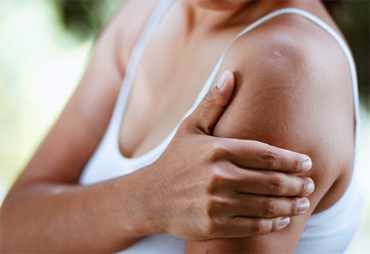What is Angioedema?
Angioedema, also known as Quincke’s edema is described as the rapid swelling of dermis (skin), mucus, and submucosal tissues. It usually affects the deeper part of the skin, commonly around the face and lips. It is also defined as an acute mast of cell–mediated reaction caused by exposure to drug, venom, pollen, or animal allergens. The swelling (localized) is due to vascular and intravascular fluid leakages. The skin around the eyes, lips, genitals, hands, and feet swell and develops into red, itchy patches called hives or urticaria on the skin surface.
Angioedema is classified into two main types: Acquired Angioedema (AAE) and Hereditary Angioedema (HAE). AAE is usually caused by allergy, and can be a side-effect of certain medicines like ACE inhibitors. HAE is caused by genetic mutations inherited from the family. These are distinguished by underlying genetic abnormalities.
Symptoms
The main prevalent symptom of angioedema is swelling which develops below the skin surface. The swelling occurs on face around eyes, lips, mouth, hands, and feet, and in certain cases it is genital. The swelling then develops into red, itchy patches called urticaria (hives). The rashes subside in a few days, but skin may look painful. Common symptoms of angioedema are:
- Difficulty in breathing
- Red and irritated eyes (conjunctivitis)
- Abdominal pain.
- Feeling sick and fatigued.
- Diarrhea and nausea.
- Fainting and dizziness
Causes
Some of the most probable causes of angioedema include:
- Allergies
- Medication
- Genetics
- Vigorous exercise
- Stress and anxiety
- Minor infections
Preventions
To prevent this disease, one should take care of the following things:
- Eating healthy
- Resting enough
- Walking, and doing physical workout
How is it diagnosed?
At Sumitra Hospital, our doctor may examine the affected area and will take details of the symptoms and past medical history. The details will include probable symptoms which occur, or worsen later. Few tes…
- Routine blood test like CBC
- Electrolytes enzyme test
- Renal function test
- Allergy test
- Skin prick test
- Blood test




